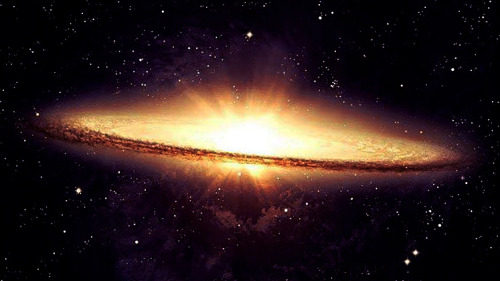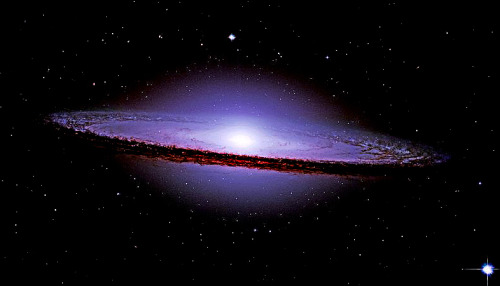Traverse City, Michigan by Lenon James

Traverse City, Michigan by Lenon James
More Posts from Chbnb and Others

peak
by Matias Alonso Revelli

August 2021, South of France. I am proud to share my first picture of Jupiter. I have stacked frames from a 2min45s video.

that is amazing



NGC2237, The Rosette Nebula

Star cluster NGC 2264, also called the "Christmas tree cluster," is an array of young stars that are between one and five million years old. We know what you're thinking: young?! For a little comparison, the Sun is a middle-aged star about 5 billion years old about 1,000 times older than the stars in this cluster.
This image combines data from Chandra (red, green, and blue) with optical data (green and white) captured by astrophotographer Michael Clow with his telescope in Arizona in November 2024.
X-ray: NASA/CXC/SAO; Optical: Clow, M.; Image Processing: NASA/CXC/SAO/L. Frattare and K. Arcand
By Smithsonian and NASAChandraXray


Stunning New Images of Jupiter From NASA’s Juno Spacecraft (read article here)

M104, Sombrero Galaxy

The Full Moon of 2021 via NASA https://ift.tt/3FWxNTm
Every Full Moon of 2021 shines in this year-spanning astrophoto project, a composite portrait of the familiar lunar nearside at each brightest lunar phase. Arranged by moonth, the year progresses in stripes beginning at the top. Taken with the same camera and lens the stripes are from Full Moon images all combined at the same pixel scale. The stripes still looked mismatched, but they show that the Full Moon’s angular size changes throughout the year depending on its distance from Kolkata, India, planet Earth. The calendar month, a full moon name, distance in kilometers, and angular size is indicated for each stripe. Angular size is given in minutes of arc corresponding to 1/60th of a degree. The largest Full Moon is near a perigee or closest approach in May. The smallest is near an apogee, the most distant Full Moon in December. Of course the full moons of May and November also slid into Earth’s shadow during 2021’s two lunar eclipses.
(Published January 01, 2022)




M104 Sombrero Galaxy
-
 chbnb reblogged this · 5 years ago
chbnb reblogged this · 5 years ago -
 chbnb liked this · 5 years ago
chbnb liked this · 5 years ago -
 jkar48 reblogged this · 5 years ago
jkar48 reblogged this · 5 years ago -
 jkar48 liked this · 5 years ago
jkar48 liked this · 5 years ago -
 northwestphotag1 reblogged this · 5 years ago
northwestphotag1 reblogged this · 5 years ago -
 northwestphotag1 liked this · 5 years ago
northwestphotag1 liked this · 5 years ago -
 pangeen reblogged this · 5 years ago
pangeen reblogged this · 5 years ago

